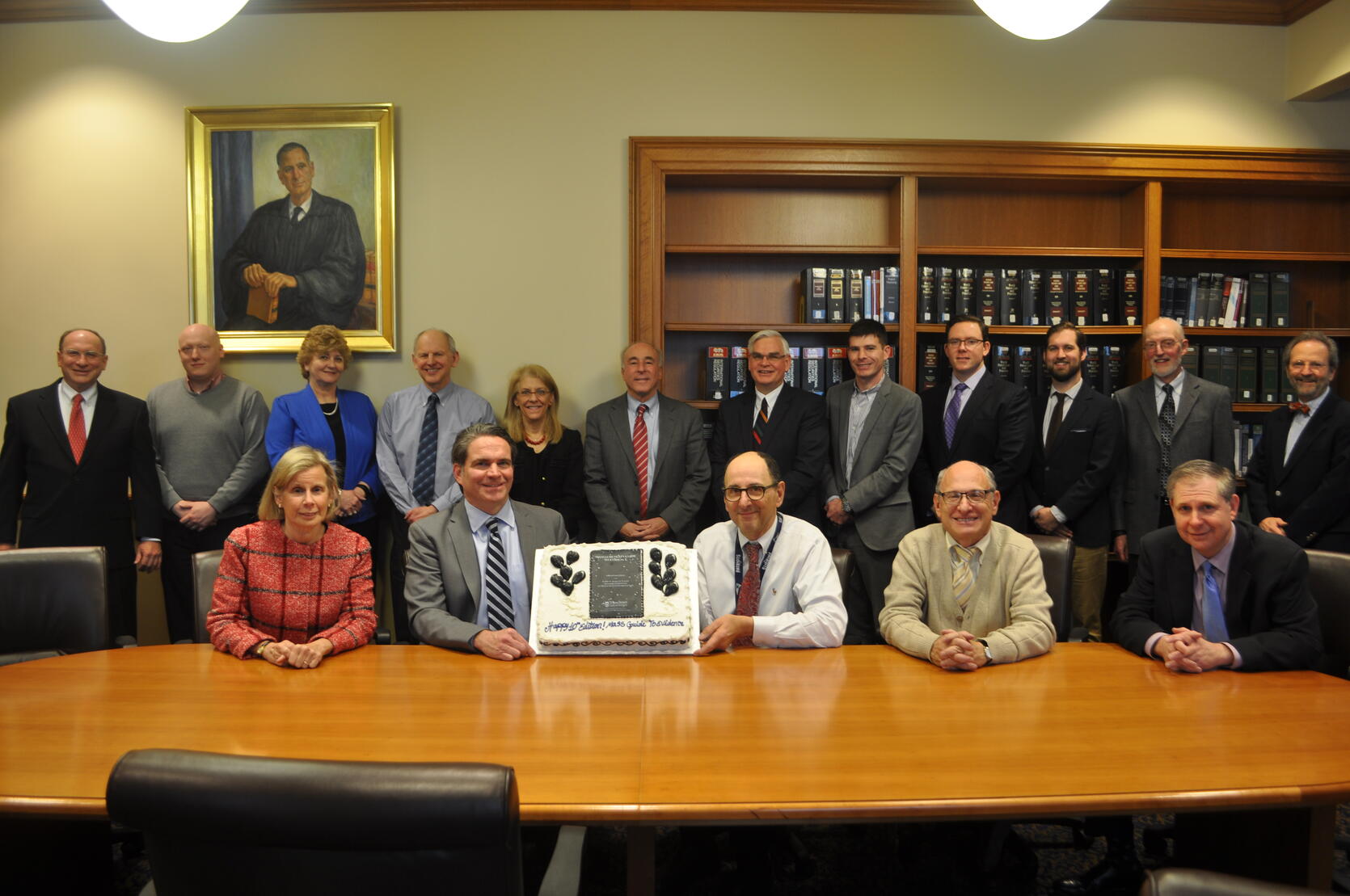- Massachusetts Court System
- Massachusetts Supreme Judicial Court
- Appeals Court
- Court News and Announcements
Media Contact
Jennifer Donahue and Erika Gully-Santiago

BOSTON, MA — The Supreme Judicial Court and its Executive Committee on Massachusetts Evidence Law today announced the release of the 2018 edition of the Massachusetts Guide to Evidence. The Justices of the Supreme Judicial Court recommend use of the Guide by the bench, bar, and public.
"This marks the 10th edition of the Massachusetts Guide to Evidence. This year, the Executive Committee's work includes substantial revisions, developments in Massachusetts evidence law, and incorporates dozens of new opinions issued by the Supreme Judicial Court and Appeals Court," Supreme Judicial Court Chief Justice Ralph D. Gants said. "The Guide has proven to be an invaluable resource for research and understanding of Massachusetts evidence law and is used daily by attorneys, judges and self-represented litigants in courts throughout the state."
"I know that Trial Court judges in particular look forward to reviewing each new edition and find the guidance, notes and references to supporting authorities invaluable," Trial Court Chief Justice Paula M. Carey said. "We are grateful to the Supreme Judicial Court’s Advisory Committee on Massachusetts Evidence Law for their hard work and to the Flaschner Judicial Institute for its support in publishing and making the guide available to all Trial Court judges."
The 2018 edition is the tenth annual edition of the Guide. An electronic version is available without charge on the court's website, where it can be searched and downloaded. The Official Print Edition of the 2018 edition of the Massachusetts Guide to Evidence is available for purchase from the Flaschner Judicial Institute, which is again providing a complimentary copy to every sitting judge in the Commonwealth. The Massachusetts Guide to Evidence assembles existing Massachusetts evidence law in an easy-to-use document organized similarly to the Federal Rules of Evidence. The Guide includes extensive explanatory notes and citations to pertinent authorities.
The 2018 edition of the Guide reflects developments in Massachusetts evidence law that occurred between January 1, 2017 and December 31, 2017. In addition to incorporating dozens of new opinions issued in 2017 by the Supreme Judicial Court and the Appeals Court, the 2018 edition contains substantial revisions, including: two new topics, Section 1117 (Civil Commitment Hearings for Mental Illness) and Section 1118 (Civil Commitment Hearings for Alcohol and Substance Use Disorders); substantial revisions to Section 1107 (Inadequate Police Investigation Evidence) and Section 1115 (Evidentiary Issues in Care and Protection and Termination of Parental Rights Cases), and a new "Weapons Evidence" subsection that thoroughly discusses the admissibility of weapons-related evidence at trial was added to the Note to Section 403.
In 2006, the Supreme Judicial Court established the Advisory Committee to prepare a Massachusetts Guide to Evidence at the request of the Massachusetts Bar Association, the Boston Bar Association, and the Massachusetts Academy of Trial Attorneys. In 2008, the Supreme Judicial Court appointed the Executive Committee of the Advisory Committee on Massachusetts Evidence Law to monitor and incorporate new legal developments and produce annual new editions of the Guide. Appeals Court Judge Peter Agnes chairs the Executive Committee and is the editor-in-chief of the Guide. The other members of the Executive Committee are: attorney Elizabeth N. Mulvey (editor), Hon. Mark S. Coven (editor) of the District Court, Clerk of the Appeals Court Joseph F. Stanton (reporter), Hon. Stephen M. Limon of the Juvenile Court, Hon. Barbara M. Hyland of the Probate and Family Court, Hon. Heidi Brieger of the Superior Court, Hon. Gregory I. Massing of the Appeals Court, Supreme Judicial Court senior attorney A.W. "Chip" Phinney, New England Law Boston Professor Philip K. Hamilton, Boston University School of Law Professor Mark Petit, Benjamin K. Golden, Esq., Edmund P. Daley III, Esq., Appeals Court law clerk Robert S. Murphy, Esq., and Supreme Judicial Court Justice David A. Lowy, who has been a member of the Committee since its inception, and now serves as a consulting member.
###